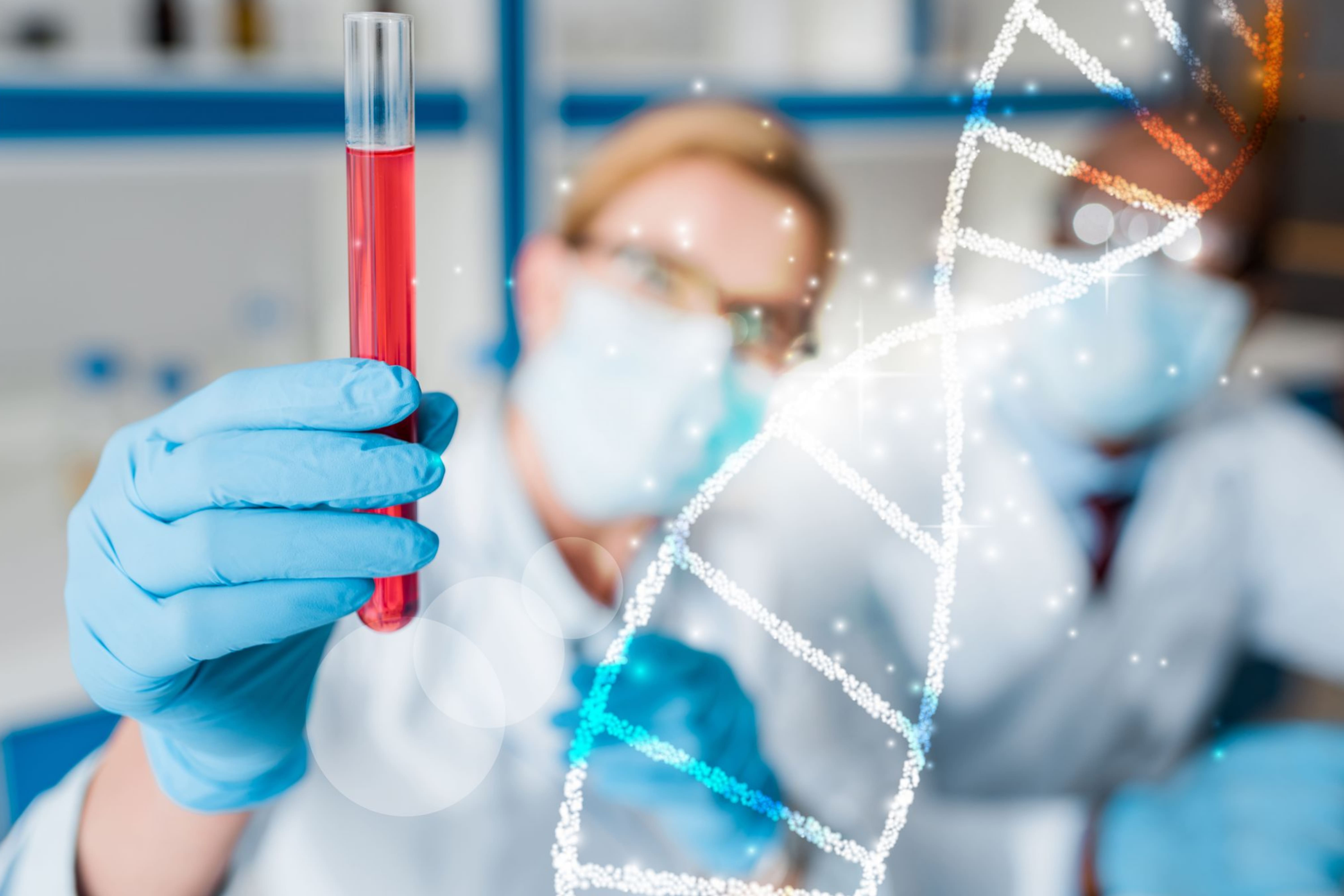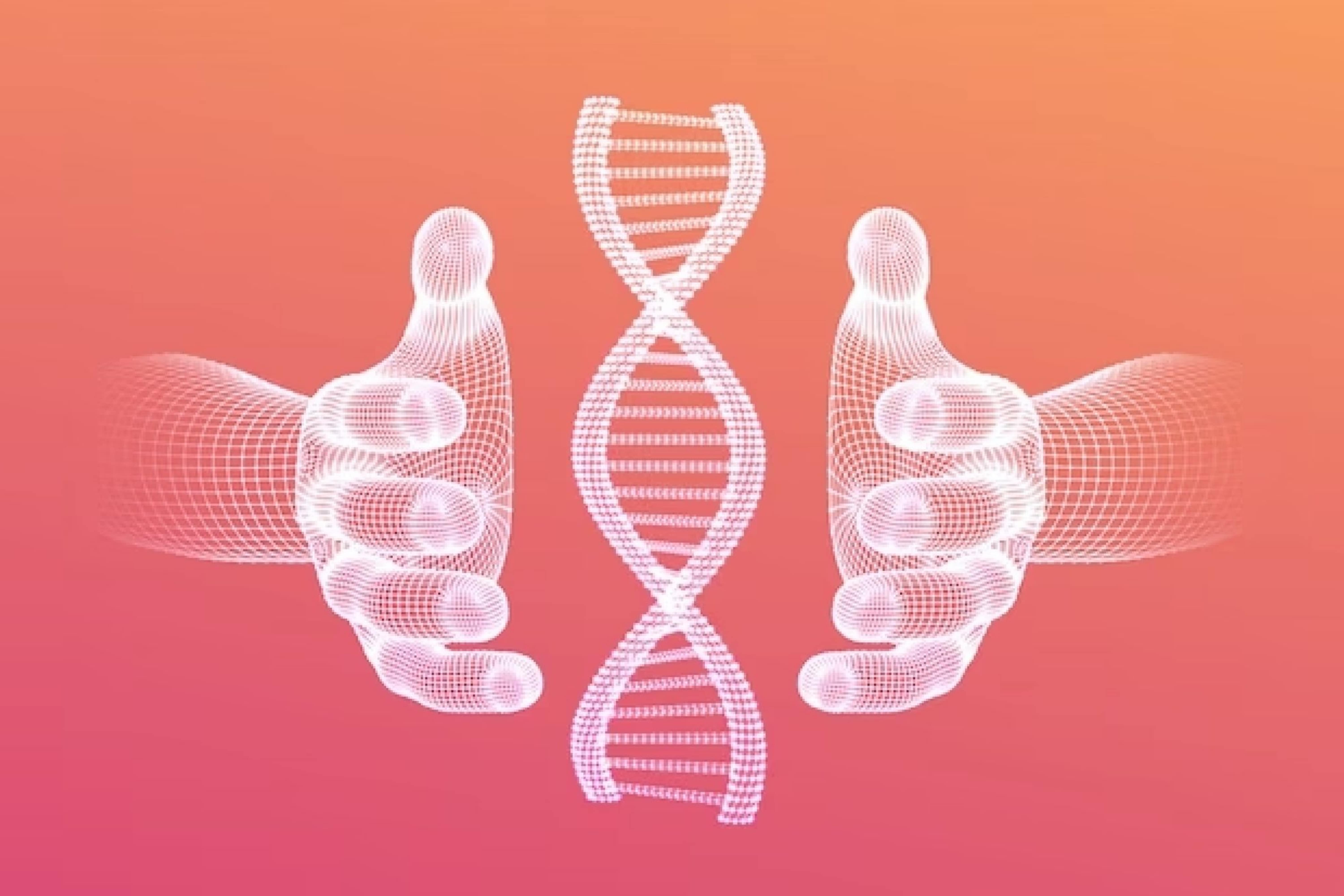The DNA diet represents a fusion of genetic science and nutritional planning. By analyzing an individual’s genetic code, it crafts eating plans that are as unique as the person themselves, bridging the gap between science and daily health routines.
Understanding the DNA Diet
The DNA diet represents a personalized approach to nutrition based on an individual’s genetic makeup. It operates on the principle that genetic variations affect how one’s body processes foods and nutrients. This approach moves away from generic dietary guidelines and focuses on personalized nutrition strategies.
Genetic testing is the foundation of the DNA diet. It involves analyzing DNA from a saliva or blood sample to identify variations that influence nutritional needs.
These variations can affect various aspects of metabolism, such as how your body stores fat, your propensity for certain nutrient deficiencies, and even your taste preferences.

The Science Behind the DNA Diet
At the core of the DNA diet is nutrigenomics – the study of the interaction between nutrition and genes. Nutrigenomics examines how certain foods can activate or deactivate genes that play a role in health conditions like obesity, diabetes, and heart disease.
The diet’s premise is that by understanding an individual’s genetic predispositions, dietary recommendations can be more accurately tailored.
For instance, someone with a genetic variation that affects fat metabolism might benefit from a diet lower in certain types of fats.
Benefits and Limitations
Benefits
The main benefit of the DNA diet is its personalized approach. Instead of following general dietary guidelines, individuals receive recommendations based on their unique genetic profile. This can lead to more effective weight management and a reduced risk of nutrition-related diseases.
Additionally, this approach can provide insights into how your body responds to different types of foods, potentially leading to better digestive health and overall wellbeing.
Limitations
However, the DNA diet has its limitations. While genetic testing can reveal tendencies, it doesn’t account for all factors influencing health and nutrition, such as lifestyle and environmental factors. Also, the field of nutrigenomics is still evolving, and not all genetic variations related to diet are fully understood.
Practical Application
Implementing the DNA diet involves several steps. First, genetic testing is conducted to identify relevant genetic markers. Then, a nutritionist or dietitian, familiar with nutrigenomics, interprets the results to create a customized diet plan.
The plan typically includes recommendations on macronutrient ratios, potential food intolerances, and nutrient needs. It also considers lifestyle factors, as these are essential in conjunction with genetic information.
Comparing the DNA Diet to Other Diets
Unlike one-size-fits-all diets, the DNA diet is unique to each individual. For example, while a ketogenic diet prescribes low carbohydrates for all, the DNA diet may recommend a higher carbohydrate intake for someone with certain genetic markers.
This personalized approach contrasts with traditional diets that apply the same principles to everyone, often leading to mixed results in terms of effectiveness and sustainability.

A Case Example: NJ Diet
Exploring real-life applications, let’s consider the NJ Diet. This diet program uses DNA testing to create personalized diet plans. Participants undergo genetic testing, and based on the results, a custom diet and supplement plan is developed.
An NJ Diet review and feedback from people illustrates the practical application of the DNA diet concept in a commercial setting. It shows how genetic testing is used to tailor dietary recommendations, aiming to improve health outcomes for individuals.
Ethical and Privacy Considerations
When discussing DNA-based diets, it’s important to address ethical and privacy concerns. Genetic data is sensitive, and there are questions about data security and how this information might be used outside of dietary advice. It’s important for individuals to understand these risks and choose reputable services that prioritize data privacy.
Future Directions in Nutrigenomics and the DNA Diet
As research in nutrigenomics advances, the potential for the DNA diet to evolve is significant. Future directions may include more comprehensive genetic testing that covers a broader range of genes related to nutrition and metabolism. This would enable even more personalized dietary recommendations.
Another area of potential growth is the integration of microbiome analysis. Understanding the complex interactions between diet, genetics, and gut bacteria could offer deeper insights into optimal nutritional strategies for individuals. Furthermore, technological advancements may make genetic testing more accessible and affordable, allowing a wider audience to benefit from personalized dietary advice.
This democratization of genetic testing could lead to a significant shift in how individuals approach their diet and health.
Addressing Skepticism and Misconceptions
Despite its potential, the DNA diet faces skepticism and misconceptions. Some critics argue that the science is not yet robust enough to make specific dietary recommendations based solely on genetic information. Others express concerns about over-reliance on genetic determinism, overlooking the importance of lifestyle and environmental factors.
It’s important for proponents of the DNA diet to address these concerns by emphasizing the diet as one component of a holistic approach to health. Additionally, ongoing research and transparent communication about the limitations and capabilities of nutrigenomics are key to gaining broader acceptance and understanding.
The Role of Healthcare Professionals
The role of healthcare professionals in the implementation of the DNA diet is vital. Dietitians, nutritionists, and doctors need to be well-informed about the latest research in nutrigenomics to provide accurate advice. They should also be cautious not to overstate the implications of genetic testing results and should consider the entire health profile of an individual.
Collaboration between genetic counselors, healthcare providers, and nutrition experts is essential for the responsible and effective use of the DNA diet. This multidisciplinary approach ensures that dietary recommendations are not only genetically tailored but also consider medical history, lifestyle, and personal preferences.
Conclusion
In conclusion, while the DNA diet offers a promising new approach to personalized nutrition, it’s part of a larger, more complex picture of health and wellbeing. Its integration into mainstream dietary advice hinges on advancements in research, ethical considerations, and the collaboration of healthcare professionals. As with any emerging field, it’s a journey of continuous learning and adaptation.
